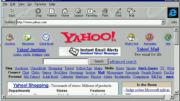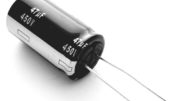We don’t spend a lot of time thinking about what our stuff is made of. Oh sure, Apple gets its fair share of attention every so often for a bonkers decision like making a phone out of titanium. (It’s a bold choice, and it does make the phone lighter, but it scratches and discolors. But that’s a topic for another article.) For the most part, though, we tend to not think of our electronic devices being made of anything but magic. That’s nowhere true of course. Once you get past the traditional plastic and glass on the outside of stuff, there are a few materials that you find over and over again.
Silicon
It’s probably no surprise that you’ll find a lot of silicon in electronic devices. Silicon is still the most common component of computer chips. It’s cheap, it works very predictably, and we know how to use it. At this point in time it allows us to make chips as small as we need them to be. Silicon is one of the most common elements in the world, being the principal component in beach sand. Computer chips don’t use beach sand, they use a special sand called “silica sand.” But from what I’ve researched, this is simply because silica sand is closer to the kind of silicon you need for chips. You could make the raw materials for chips from any kind of sand, it would just take more refining.
Copper
Copper is another one of the most common elements on earth. It’s used for cables because it’s a great compromise-type material. It’s not terribly expensive, it carries electricity quite well, and it’s strong enough that it doesn’t break easily. But, we all remember 5 or so years ago when the cost of copper shot up. All of a sudden the news was full of stories about stolen copper. People were stealing air conditioning coils for the copper. Since then, the cost of copper has come down about 33% but it’s still higher than it was ten years ago. A generation ago copper was so cheap they made pennies out of it. They stopped doing that because, well, pennies were worth less and copper was worth more.
All that said, you don’t need to worry about a copper shortage. We have all we need, we know how to get it out of the ground, and it recycles very easily.
Tin and Lead
We tend not to think about the amount of tin and lead in modern electronics. However, every component is connected by solder, and solder is… tin and lead. The good thing about both tin and lead is that they’re plentiful and extremely cheap. Both theoretically recycle pretty well although I don’t think anyone really does tin recycling. It’s just not worth it.
Of all the non-radioactive metals, lead is one of the most poisonous, and we’ve known that for over 100 years. The good news is that we know how to protect against lead poisoning and we do it very effectively. There’s plenty of lead to be found in the world, plenty of tin, and it’s just not something you should worry about.
Gold
Today’s electronics have less gold than they used to. Gold is, well, the gold standard for connecting things. It allows electricity to pass even easier than copper. It doesn’t tarnish. But, it is way too expensive to make things like cables out of.
When computers were more modular, you would see more gold in them. Gold is used for the tips of circuit boards that need to connect to other circuit boards. Since our devices aren’t as upgradeable as they used to be, there’s less use for gold. That’s good, too. While there’s no shortage of gold, its price tends to shoot up whenever traditional investments tank. That makes it tricky to work with, when you’re trying to keep costs down.
Lithium
Now we come to the real question. There are a lot of other metals present in small amounts in electronics, but lithium makes up an ever-growing percentage. Practically every battery uses lithium as a major component. Without lithium, it’s very hard to make rechargeable batteries. And, at one point, we were seriously worried about running out of it.
The demand for lithium is expected to be sky high for a long time to come. It takes something near 1,000 pounds of lithium to make an electric car battery. That’s a lot of lithium! Lithium is expensive to pull from the ground and it leaves a big, poisonous mess. Those folks who worry about strip mining coal are ten times more worried about what lithium mining will do.
In just the last few years, massive lithium deposits have been found all over the world, including in Southern California. There’s enough lithium ore that we won’t have to worry about it for decades or more. In the meantime you can recycle lithium batteries and you can also “downcycle” it. In other words you can take a high-quality lithium battery like one used in an electric car and use it as a backup battery for a traffic light. This will make it easier to keep current batteries in service.
While it’s good that the supply of lithium isn’t an issue, the way we mine it is going to be an issue for a while and so it’s probably the only element in modern electronics which we really need to think about having a shortage of.
What can you do?
That’s the rough question. Yes, you should absolutely recycle your used electronics. In some states it’s the law anyway, you have to. But even if you can legally through an old computer in the trash you shouldn’t, because it will poison the ground it’s buried in.
On the other hand, we don’t have enough capacity in this country to recycle all the things we stop using. Some things, famously like AirPods, are practically impossible to recycle using current methods. A lot of old electronic stuff ends up in poorer countries where it’s left in gigantic toxic piles mined by children. You don’t want to feel like you’re contributing to that.
So there isn’t a great answer yet. The good news is that it seems we have a little time left before there’s no choice but to ask the question.
Sponsored by SolidSignal.com. Shop at solidsignal.com or call 888-233-7563 with questions about the kind of electronics you really want.





